Possible causes of tongue biting during sleep
The soreness or laceration associated with tongue biting is usually minimal but undoubtedly annoying.
What is the cause of this strange phenomenon?
Let's look at the various possible reasons. 👀
Sleep disorders
Sleep disorders are a silent thief of your sleep and can also cause involuntary nighttime tongue biting.
There are a variety of sleep disorders.
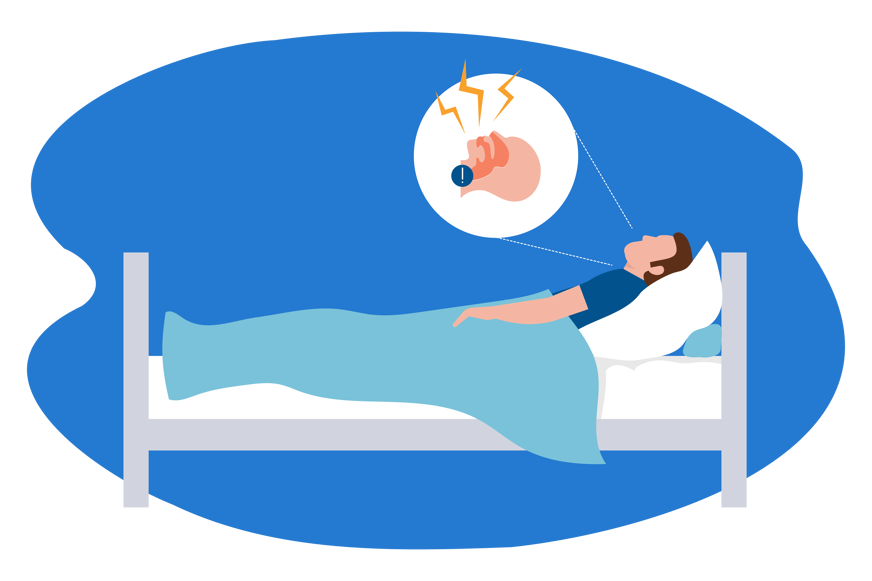
Sleep apnoea is a condition in which breathing is repeatedly interrupted during sleep. 😴
This can cause your tongue to relax and fall back into your airways, leading to tongue biting and even exceesive drooling.
Obesity, physical abnormalities, age, and family history can all contribute to the development of sleep apnoea.
Bruxism [1] is another sleep disorder where you grind or clench your teeth while sleeping. 😬
Teeth grinding can cause jaw muscle contraction, resulting in tongue biting.
The exact causes of sleep bruxism aren't yet fully understood.
However, several factors can contribute to teeth grinding, including temporomandibular joint (TMJ) disorders [2] and malocclusion [3] or misaligned teeth.
Neurological disorders
If you bite your tongue in your sleep, it could be a sign of a neurological disorder. 🧠
Neurological disorders such as epilepsy [4] and Parkinson's disease [5] can cause involuntary movements during sleep that lead to tongue biting.
Epilepsy is a disorder characterised by recurrent seizures caused by abnormal electrical activity in the brain.
Nighttime seizures can result in muscle spasms and contractions in the jaw and tongue. 👅
Consequently, this may lead to unintentional tongue or cheek biting while sleeping.
Parkinson's disease is a degenerative condition that affects the nervous system and results in symptoms such as tremors, stiffness, and impaired movement.
These symptoms can also cause muscle contractions and spasms that lead to tongue biting.
Certain medications used to treat epileptic seizures or Parkinson’s disease can also contribute to tongue biting.
Lyme disease
Lyme disease [6] is a tick-borne infection that can lead to neurological symptoms such as facial muscle weakness and sleep disorders.

These symptoms can lead to abnormal movements and muscle tension during sleep. 💪🏼
As a result, involuntary tongue biting can occur while you're asleep.
Other symptoms of Lyme disease may include:
- Skin rashes
- Severe headaches
- Facial palsy
- Heart palpitations
- Pain and swelling in joints
- Shortness of breath
- Insomnia
If you experience any of these symptoms besides nocturnal tongue biting, you should immediately consult a doctor. 👩🏼⚕️
Geniospasm
Geniospasm [7] is a rare genetic disorder in which the muscles in the chin contract involuntarily. 🧬
This chin trembling leads to jaw clenching and, in some cases, tongue biting.
The underlying cause of geniospasm is unclear.
However, it is thought to be linked to a mixture of factors, including genetics, nerve damage, and unusual muscle activity.
Rhythmic movement disorder
Rhythmic movement disorder [8] (RMD) is a condition in which repetitive movements or actions occur during sleep.
These movements include head banging, body rocking, and head rolling. 🤯
This may result in the tongue being pressed against the teeth.
RMD is a common disorder in infants and young children, but in some cases, it can persist into adulthood.
Medications
Certain medicines, such as anti-depressants, anti-epileptics and anti-psychotics, can strongly influence our movements during sleep.
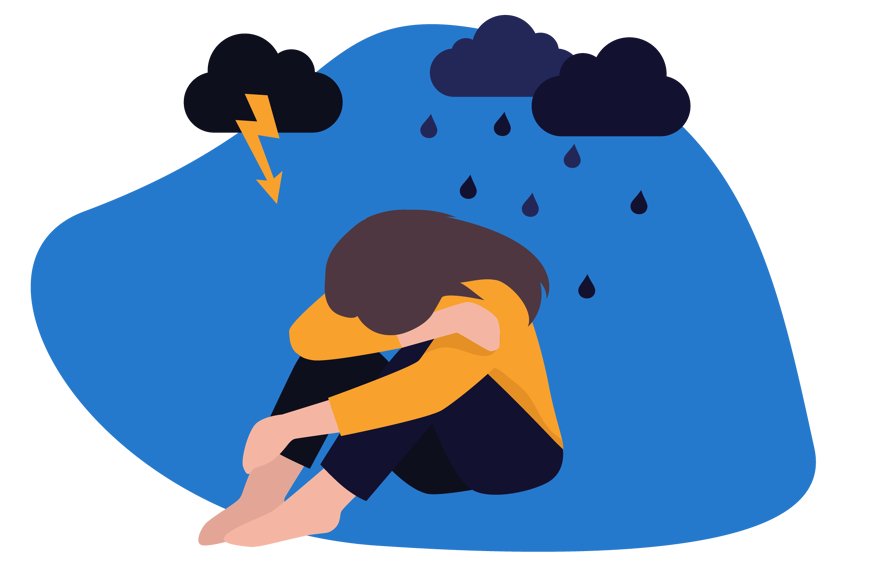
These drugs can interfere with the brain's normal function in controlling muscle tone and movement. 🧠
This, in turn, leads to potentially harmful behaviours such as tongue biting during sleep.
Stress and anxiety
The body's fight-or-flight response is activated when a person is under stress. 😖
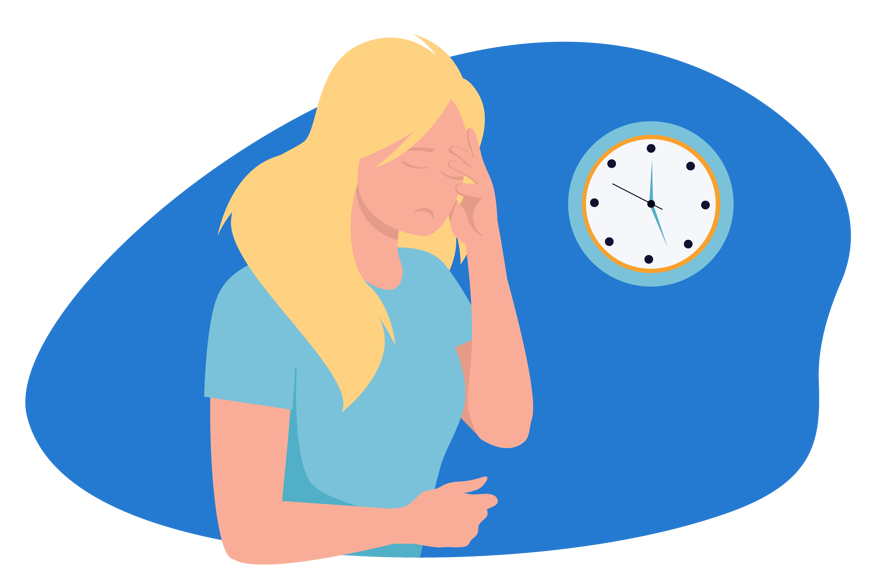
This releases hormones leading to muscle tension and involuntary movements during sleep.
These involuntary movements include biting your tongue while you sleep.
Alcohol and drug use
Alcohol and drug use can disrupt the normal patterns of muscle activity and movement control in the body.
As a depressant, alcohol affects the central nervous system and causes drowsiness and muscle relaxation. 🥃
However, when the effects of alcohol wear off, rebound effects can occur, such as abnormal movements during sleep that can lead to tongue biting.
Drugs like ecstasy or MDMA can also have similar effects on your body, such as increased muscle tension and abnormal movements.
Consequently, these effects may result in unintentional tongue biting while you sleep.
Enlarged or swollen tongue
A swollen tongue can obstruct your breathing during sleep. 😪
This, in turn, can cause you to bite your tongue.
It can also lead to increased muscle tension and abnormal movements such as teeth grinding, which can cause the tongue to be pressed against the teeth as well.
An enlarged tongue can be caused by an underlying condition such as Down syndrome.
Medication or radiation therapy can also cause a swollen tongue.
Poor sleep habits
Poor sleep habits can contribute to tongue biting by disrupting the normal patterns of muscle activity and movement control in your body. 😳
Too little sleep can lead to increased muscle tension and abnormal movements during sleep, such as jaw clenching or teeth grinding.
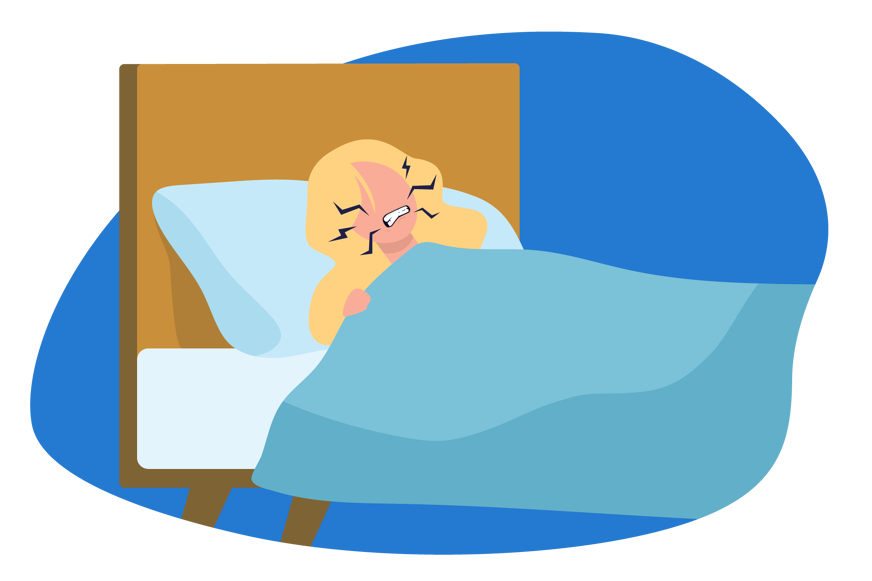
This can lead to the tongue being bitten or pressed against the teeth, causing discomfort or tongue injuries.
Poor sleep habits can also lead to disorders such as apnoea or insomnia.
Preventing tongue biting during sleep
Preventing tongue biting during sleep is essential.
Not only can tongue biting cause pain and discomfort, but it can also lead to severe complications such as infection or difficulty in speaking. 🗣️
You can't always control tongue biting, but you can take steps to protect your tongue from damage.
Identify and treat underlying causes
By identifying and treating the underlying causes, you can stop tongue biting in sleep at its source.
For example, if an underlying condition such as sleep apnoea is causing you to bite your tongue, treating the sleep apnoea can help relieve the symptoms. 🩺
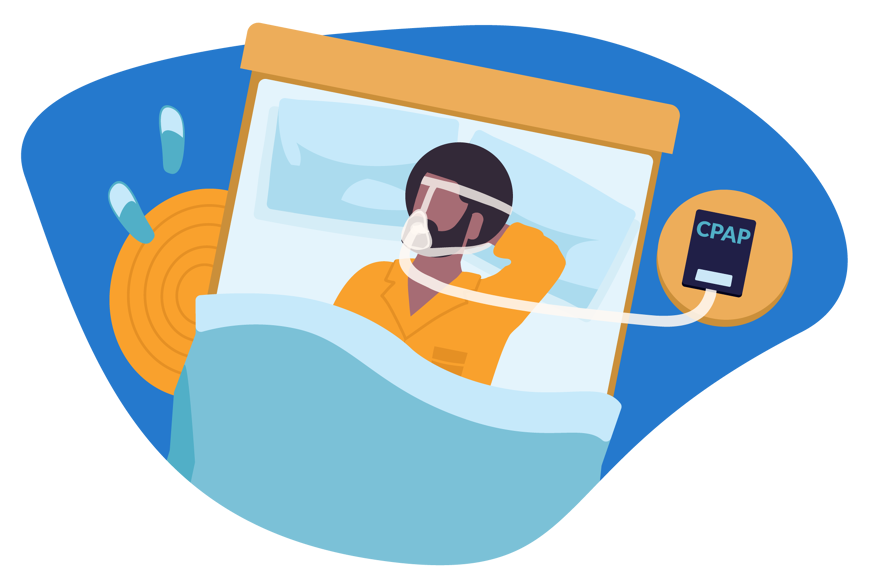
If a medication is causing tongue biting as a side effect, changing the medication or adjusting the dosage can help.
By addressing the cause, you can prevent biting your tongue in sleep.
It can also help improve your overall health and well-being.
Use mouthguards
Mouthguards or night guards can help prevent tongue biting during sleep by preventing the jaw from clamping down.
A custom-fitted mouthguard worn during sleep can create a physical barrier between the upper and lower teeth.
This prevents them from coming into contact with the tongue. 🦷
It also reduces the risk of teeth grinding (bruxism) and jaw clenching, which are common causes of tongue biting.
A mouthguard can help you sleep peacefully.
You should not compromise on the fit of your mouthguard.
Make sure you visit a dental office to have your mouthguard fitted for the best results. 👩🏼⚕️
Maintain a healthy weight
Maintaining a healthy weight is essential to prevent tongue biting while sleeping.
Excess weight puts pressure on your airways and can cause them to collapse during sleep, leading to breathing disorders and increased muscle tension. 🫁
As a result, you might inadvertently bite your tongue.
By keeping your weight under control, you reduce both the pressure on your airways and the risk of tongue biting.
Practise relaxation techniques
Relaxation techniques such as deep breathing, meditation, and yoga can prevent tongue biting during sleep. 🧘🏼♀️

Tension and stress in the body can increase muscle activity and movement during sleep and put your tongue at risk.
Incorporating relaxation techniques into your routine can lower stress levels, reduce muscle tension, and improve sleep quality.
This effectively reduces the likelihood of tongue biting.
Relaxation techniques also have a positive effect on your overall mental and physical well-being.
Avoid sleeping on your back
If you sleep on your back, your tongue can fall into the back of your throat.
This can block your airways and increase the risk of tongue biting.
Sleeping on your side or stomach allows your tongue to remain in a neutral position.
This reduces the risk of tongue biting and makes for a better night's sleep.
It's a small change that can significantly protect your tongue and ensure a peaceful night's sleep.
You'll find side sleeping more comfortable with the right pillow.
Our favourite UK pillows for side sleepers:
How can you treat a bitten tongue?
There are various treatments available for a bitten tongue.
Here are some steps you can take to treat a bitten tongue:
- Rinse your mouth with warm salt water: This can help reduce pain and swelling and promote healing.
- Apply a cold compress: Placing a cold compress, such as a bag of frozen peas or a cold spoon, on the affected area can help reduce swelling and numb the pain.
- Take pain relief medication: Over-the-counter medications, such as ibuprofen or acetaminophen, can help alleviate pain and reduce swelling. However, before taking any medication, it's important to consult with your doctor.
- Avoid hot and spicy foods: These can irritate the injury and make it more painful. Stick to soft, cool, and bland foods until the injury has healed.
The treatment you should choose will depend on the reason behind the bite.
When should you seek help for tongue biting?
You must see a doctor if you keep biting your tongue during sleep.
Tongue biting during sleep may be a symptom of an underlying illness or sleep disorder that you should treat. 🏥
A healthcare professional or a neurologist can diagnose the cause and offer appropriate treatment options.
Some underlying conditions, such as sleep apnoea, RMD, epilepsy, and having a swollen tongue, have serious health consequences if they aren't treated.
In addition, repeated biting can cause pain, discomfort, and injury to your tongue.
Therefore, it's essential to see a doctor to address the underlying cause and prevent complications.
If you want to get more information on the underlying causes of tongue biting, you can head to the NHS website [9] and search for the specific condition you're struggling with.
Unfortunately, the NHS has no dedicated studies or information on tongue biting. 😞
So, what can you do if you bite your tongue?
Several factors, including poor sleep habits, underlying medical conditions, and alcohol and drug use, can cause tongue biting during sleep.
However, taking preventive measures and addressing the underlying cause is crucial.
Whether you practise good sleep hygiene, use a mouth guard, maintain a healthy weight, or seek medical help, taking action can improve your sleep.
Don't let tongue-biting ruin your sleep. 🥱
Take control and change your habits so that they have a positive impact on your overall well-being.







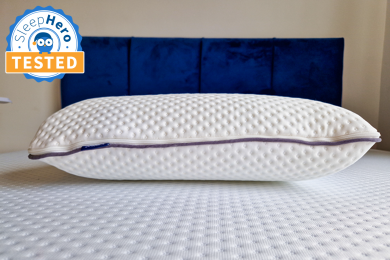

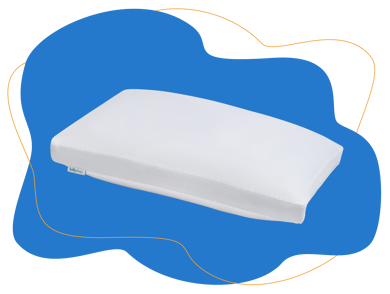



 Michael
Michael


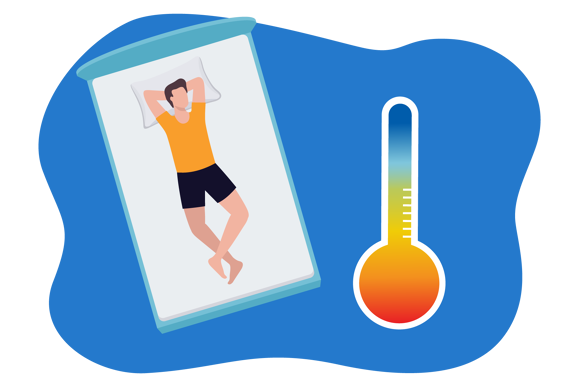
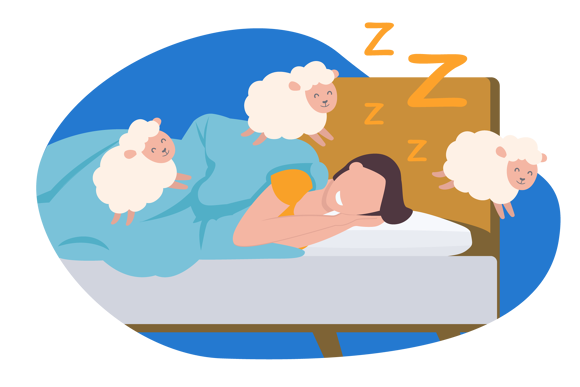


Alternatively, message us directly via the Contact Us page.